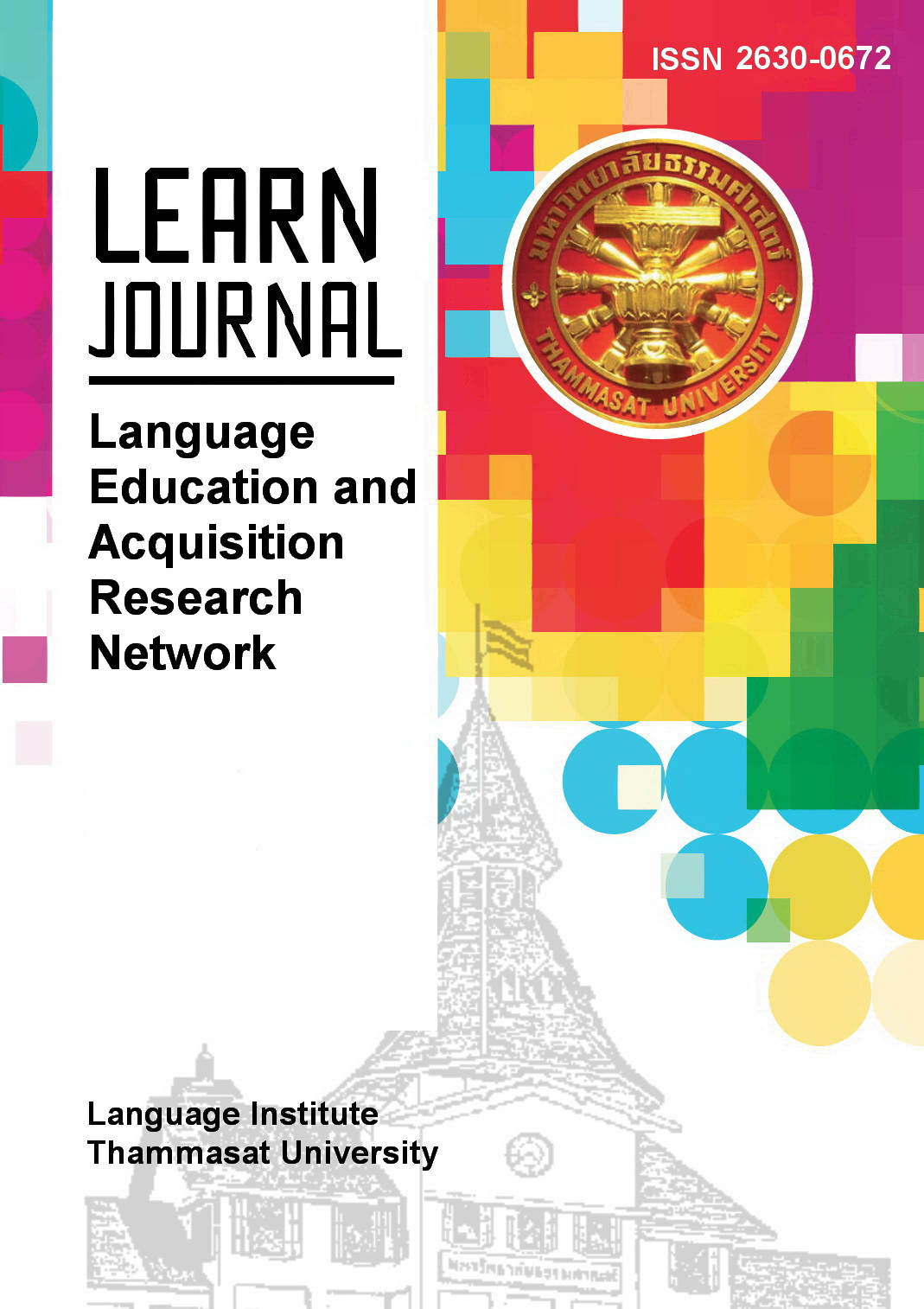The Impacts of L1 Integration towards General English Classroom of Thai Public University Undergraduate Students: An Account of Learning Motivation Perspective
Main Article Content
Abstract
This mixed method research aimed to: (a) investigate the practical ways that mother-tongue language (L1) can be used to facilitate teaching and learning in an English speaking classroom context and in high level education for public university undergraduates; (b) explore how public university undergraduates use their L1 to help them study in different learning situations in terms of learning motivation. This study focused on high level education and the use of L1 in an English speaking classroom context towards learning motivation. Two hundred and seventy undergraduates were randomly selected using systematic random sampling while twenty-four lecturers were purposively chosen so the insights from the multiple angles could be discovered; thus, five research instruments were used to collect the data in this study. Three significant findings suggest: first, participants advise that L1 should be used in a conclusion stage, for clear and comprehensible subject matter should be done before the end of the instruction. Second, it is convincing that nonnative English speaker lecturers feel guiltier when they use students’ mother tongue in the instruction; in the meantime, native English speaker lecturers are willing to employ students’ L1 in achieving classroom objectives. With this regard, it can be inferred that non-native English speaker lecturers need supportive insights about effective roles of students’ L1 in the target language (L2) classroom. Third, students’ mother language motivates more confidence in productive skills, while receptive skills allowed the careful application of L1 to assist students’ learning.


